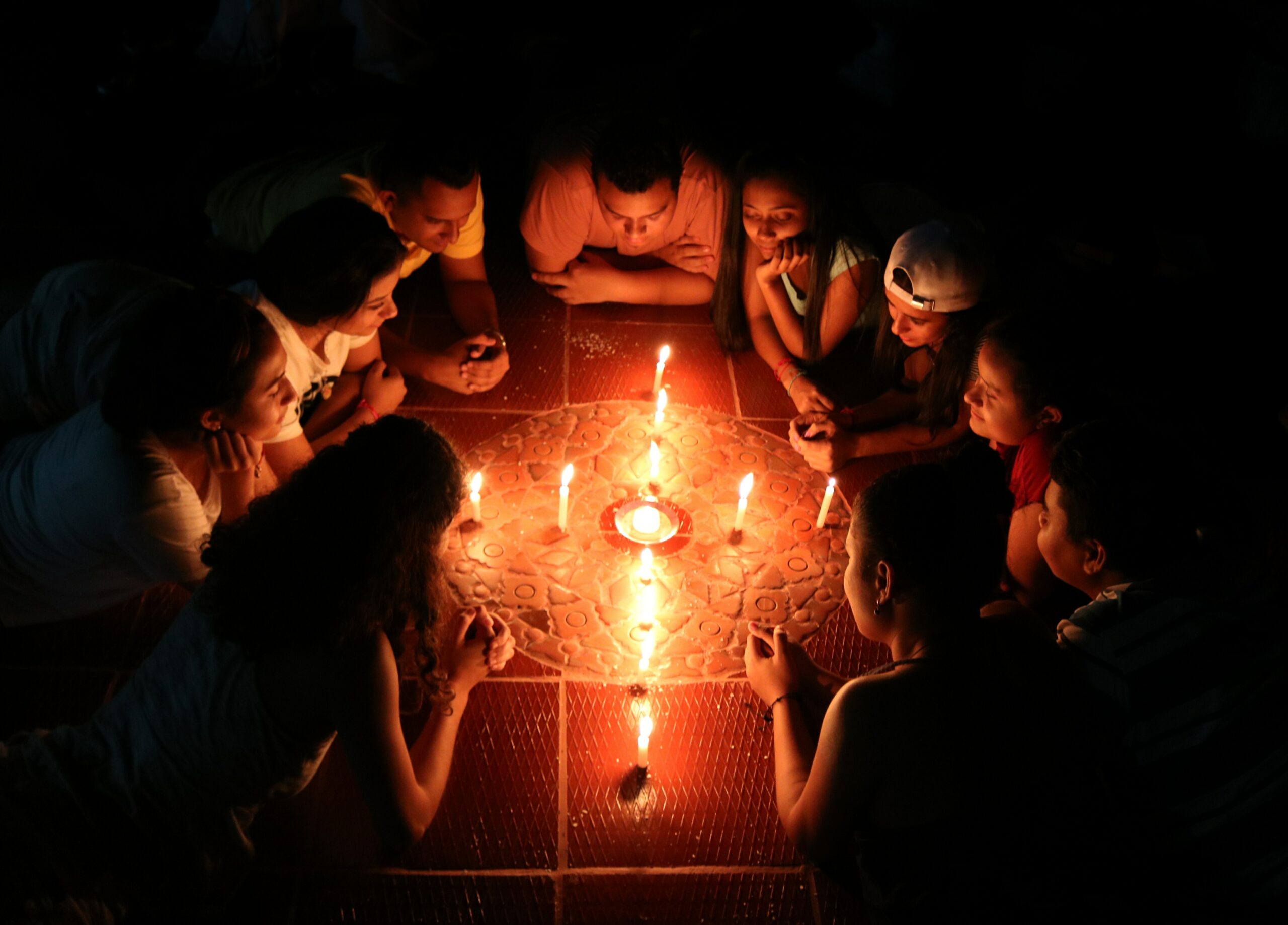I often try to imagine what life was like in the early Church, in the first century, a Church still struggling to understand what it was meant to be, to become. My field of studies is the medieval Church, though that’s not where I go in my imagination—with its schisms and crusades and infighting, it’s not always a pleasant place to be! But the beginning, when everything was fresh and new and immediate and simple… that’s a place I like to visit.
Simple. There’s a word that the Church seems to have subsequently forgotten, right? But imagine for a moment what it was like in those times after the Spirit descended at Pentecost and the disciples formed house churches, modeling as they did Jesus’ own strategy when he sent his followers out into the places people live.
Throughout the book of Acts, every mention of a local Church or Church meeting, whether for worship or fellowship, is a reference to a Church meeting in a home. That’s easy for us to forget, with our pews and our stained glass and our organs. Most scholars agree that the early house Churches were rarely comprised of more than 15 or 20 people. (As many as 90 percent of townspeople lived in apartments—one or two rooms above or behind shops. Most apartments shared a public courtyard with adjoining units, and families cooked in the courtyards. Life happened in front of the neighbors. In first-world countries, it’s hard to imagine what the early Church experienced.)
So it was simple. In these dining-area courtyards, Christians assembled: to reenact the Eucharist, to pray, to plan evangelization, to teach, to baptize.
What distinguished them from us, their descendants, so many centuries later is, I think, their closeness to Jesus. Not everyone in these first small communities had known Jesus when he was alive, but some had. Others had parents or cousins or friends who had. His words were still fresh in their minds; theology hadn’t stepped in to distance them from what he had to say to them, from what he gave his infant Church.
What he gave them is what we read in today’s Gospel from St. Matthew, the practices known as the “three pillars” of the Church: prayer, fasting, and charity.
There’s a reason they’re known as pillars. According to the dictionary, a pillar is “a person or thing regarded as reliably providing essential support for something.” Essential support. What the structure needs to stay intact.
What does the Church need to stay intact?
Jesus doesn’t simply gift his people with three pillars that will keep them strong and on the right path. He tells them very specifically how those pillars are to be used. When you give alms, he says, don’t make a big deal of it. Help people quietly; they’ll know, and so will God. You don’t need a street named after you or a civic award presented at a formal ceremony.
When you pray, he continues, don’t make a big deal of it. Be quiet; be private. Don’t try to attract attention to your prayers; they’re not performance art.
And when you fast, he concludes, don’t make a big deal of it. Don’t call attention to yourself, don’t try to be holier-than-thou. God knows when you fast; and that’s pretty much the whole point of doing it, right?
You’ll notice that he isn’t saying “if you pray… if you give alms… if you fast.” These pillars of faith he’s gifting to the early Church are in fact a blueprint for how they are to live together in community. He is assuming that this is what his followers will do. He’s not concerned in telling them to pray, fast, and give alms: of course they’ll do those things! What he wants is for his followers, his new Church, to be very clear about its relationship to God and its relationship to the world. You do these things for closeness to the Trinity, not for societal approbation and rewards.
The Gospels have always struck me as keeping things pretty simple. Love God, and love your neighbor as yourself. Clothe the naked; feed the hungry; give to the poor. Pray always. Fast and give alms.
We live in a different world, of course. In a world where we don’t worship in each other’s homes. In a world of such staggering inequality that it’s difficult to see how almsgiving could change anything. In a world where our prayers often go unanswered. In a world where the Church’s requirements for fasting are hardly an inconvenience. We might yearn for a simpler time.
Yet we could keep it simple, if we tried. If we read Jesus’ words and applied them rigorously to our own lives and comportment and thought and faith. It wouldn’t be easy, but it could be…. Simple.
 Jeannette de Beauvoir is a writer and editor with the digital department of Pauline Books & Media, working on projects as disparate as newsletters, book clubs, ebooks, and retreats that support the apostolate of the Daughters of St. Paul at http://www.pauline.org.
Jeannette de Beauvoir is a writer and editor with the digital department of Pauline Books & Media, working on projects as disparate as newsletters, book clubs, ebooks, and retreats that support the apostolate of the Daughters of St. Paul at http://www.pauline.org.
Feature Image Credit: Sindy Mar, https://www.cathopic.com/photo/12808-contemplacion-comunidad
